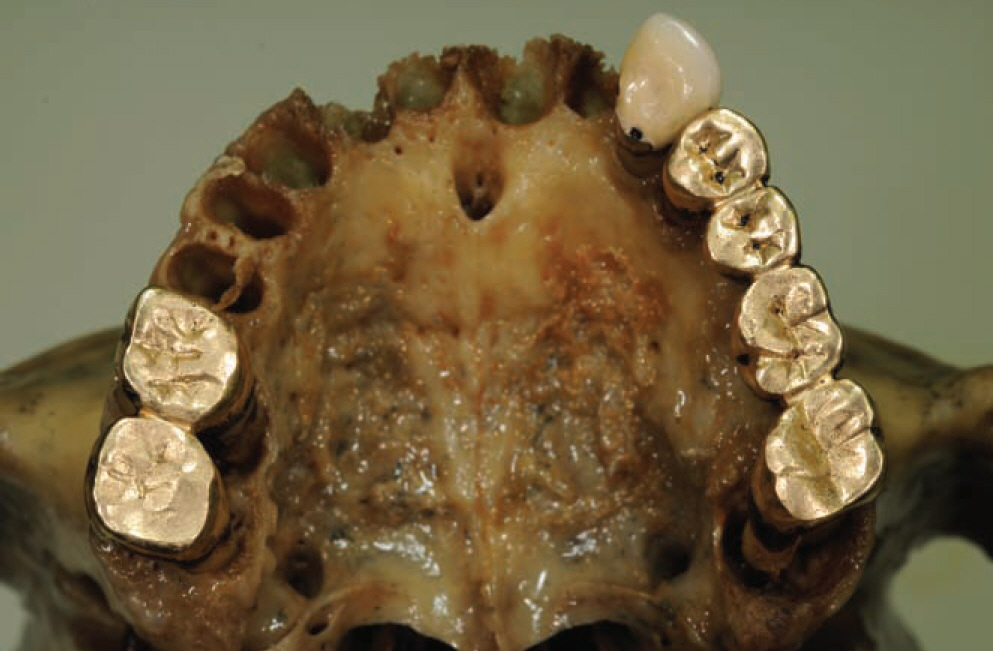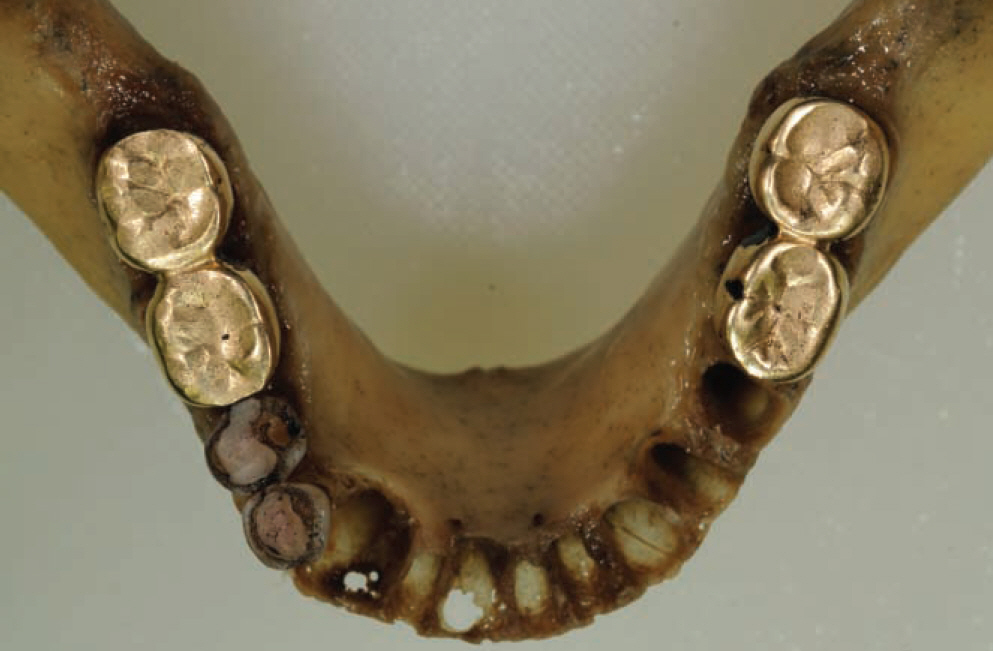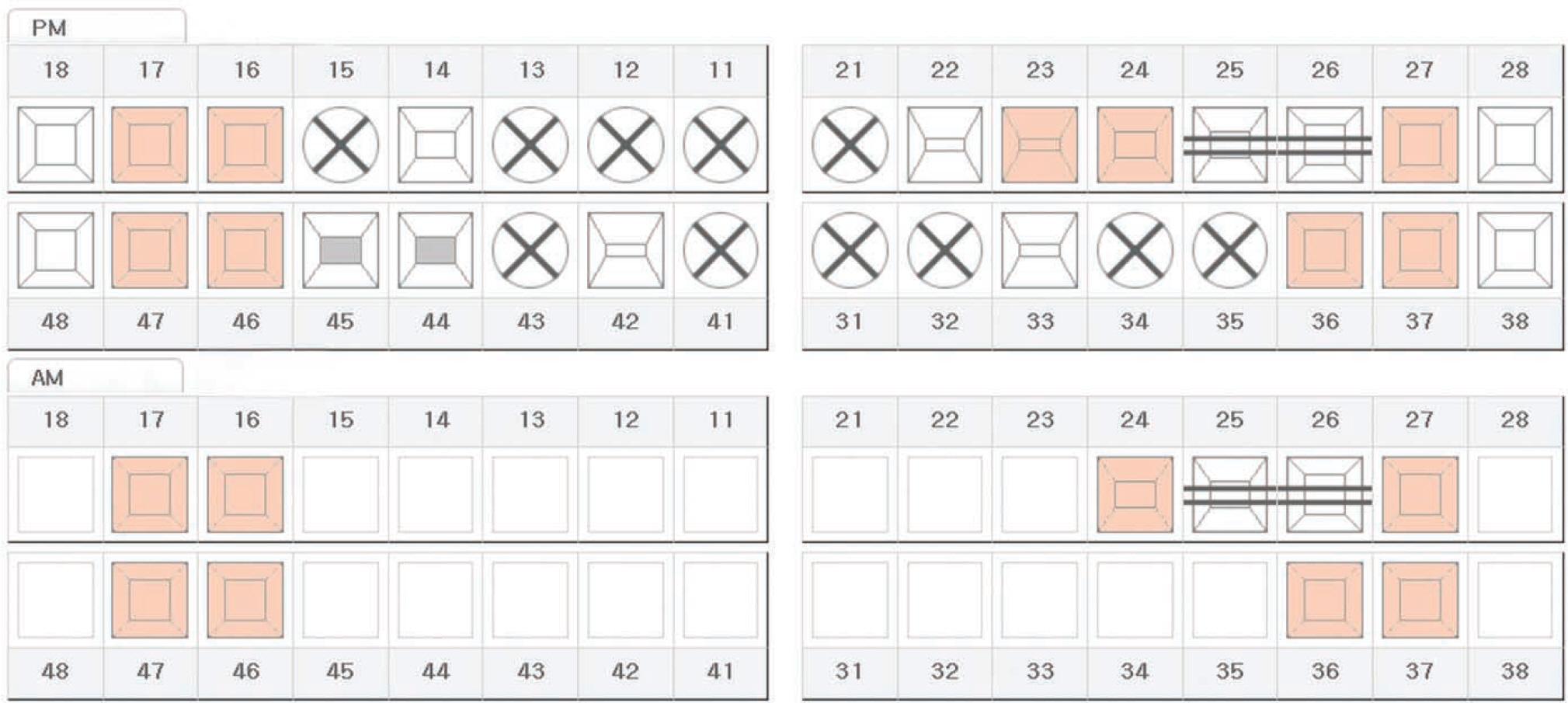Korean J Leg Med.
2015 Feb;39(1):12-16. 10.7580/kjlm.2015.39.1.12.
Dental Identification of the Putative Body of a Most Wanted Fugitive
- Affiliations
-
- 1Medical Examiner's Office, National Forensic Service, Wonju, Korea. komiyama@korea.kr
- KMID: 1785233
- DOI: http://doi.org/10.7580/kjlm.2015.39.1.12
Abstract
- Dental identification was conducted on the putative body of a most wanted fugitive who was considered to be the de facto owner of the ferry MV Sewol. Postmortem examination showed many dental characteristics, including gold crowns, a porcelain-fused-to-metal crown, a gold fixed bridge, and resin restorations. The estimated age of the body was approximately 73 years. Antemortem data collected by the fugitive at private dentist showed that 10 teeth had dental features. When the antemortem data on the 10 teeth were compared with the corresponding teeth by using postmortem data, there was no discrepancy in the remaining teeth. The number of possible combinations was calculated, and the likelihood of this fugitive and any other person having the same dental features was one in 14 billion. Using the results of dental examination, the body was successfully identified.
MeSH Terms
Figure
Reference
-
1. Lee S, Lim SB, Kim DW, et al. A statistical analysis on forensic odontological examination at the NFS from 2007 to 2010. Korean J Leg Med. 2011; 35:32–41.2. Gustafson G. Age determination on teeth. J Am Dent Assoc. 1950; 41:45–54.3. Johanson G. Age determinations from human teeth: a critical evaluation with special consideration of changes after fourteen years of age. Odontol Revy. 1971; 22(Suppl):1–126.4. Lee SS, Seo JS, Kang MH. Identification of Korean victims in PMT-air airplane crash accident. Korean J Leg Med. 2007; 31:157–61.5. Lee SS, Kim DW, Yoon SH, et al. Dental identification of the victims of the cold storage warehouse fire in Icheon. Korean J Leg Med. 2009; 33:74–8.6. Senn DR, Stimson PG. Forensic dentistry. 2nd ed.New York: CRC Press;2010. p. 172–7.7. Keiser-Nielsen S. Dental identification: certainty V probability. Forensic Sci. 1977; 9:87–97.
Article
- Full Text Links
- Actions
-
Cited
- CITED
-
- Close
- Share
- Similar articles
-
- iDENTIfyme Informative Campaign: Raising Forensic Dental Identification Awareness in the Community
- Dental Identification of the Victims of the Cold Storage Warehouse Fire in Icheon
- Body part identification in 1-to 5-year-old children
- Management of Gastrointestinal Foreign Body Ingested during Dental Procedure
- RNA for Body Fluid Identification in Forensics





